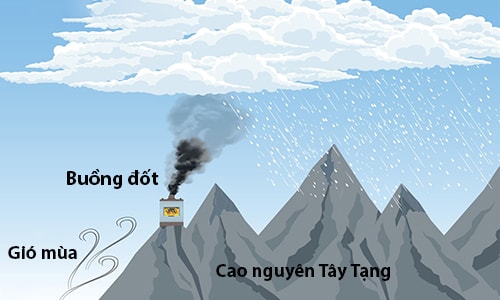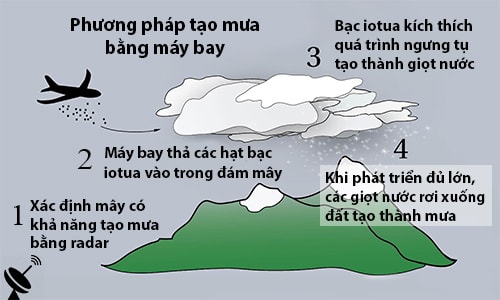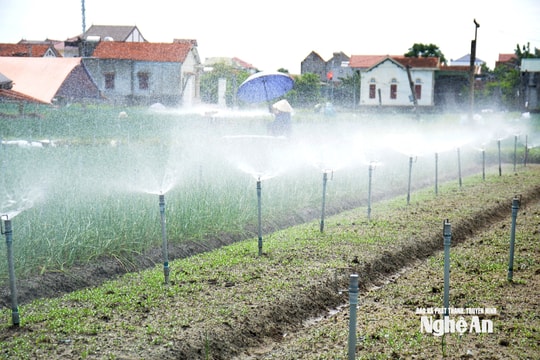China's world's largest rainmaking system
China uses fuel-burning chambers to create silver iodide particles that help form clouds and make rain fall.
|
Rainmaking system using solid fuel combustion chamber on the Tibetan Plateau. Photo:SCMP. |
China is developing the world's largest rainmaking system, covering 1.6 million square kilometers, three times the size of Spain,South China Morning PostThe system, consisting of tens of thousands of fuel combustion chambers installed on the Tibetan plateau, could increase rainfall in the region by up to 10 billion cubic meters per year, equivalent to 7% of China's total water consumption.
The solid-fuel combustion chambers are located on steep mountaintops that catch the humid monsoon winds from South Asia. Scientists use them to create silver iodide, a cloud-forming agent with a rock-like crystalline structure. The moist monsoon winds combine with the silver iodide particles produced by the combustion chambers to form clouds that produce rain and snow.
"Currently, more than 500 combustion chambers have been deployed on mountaintops in Tibet, Xinjiang and some other areas for testing. The collected data shows very promising results," a project researcher shared.
The project is currently being developed by the China Aerospace Science and Technology Corporation. Scientists have designed and built a combustion chamber based on advanced rocket engine technology, allowing the system to efficiently burn solid fuel in an oxygen-deficient environment at altitudes of more than 5,000 meters above sea level. After many design improvements, the combustion chamber can operate in a near-vacuum environment for months, even years, without maintenance.
Rainmaking systems using solid fuel combustion chambers are not a new idea, some countries like the US have tested them on a small scale, but China is the first country to apply the technology on such a large scale.
The cost of developing a ground-based rainmaking system is relatively cheap compared to the method of making rain by airplane. The cost of manufacturing and installing each combustion chamber is about 8,000 USD, which can be lower if mass production. Meanwhile, a rainmaking aircraft can cost hundreds of thousands of USD and only on a small scale.
|
Rainmaking method using airplanes. Photo:Snow Brains. |
Tibet is known as Asia's largest freshwater region with its huge glaciers and underground freshwater reserves. They are the main source of water for the continent's largest rivers such as the Yellow River, Yangtze River, Salween River and Brahmaputra River.





